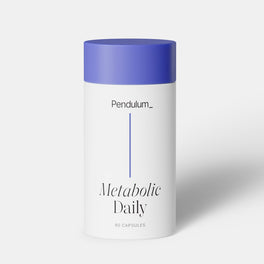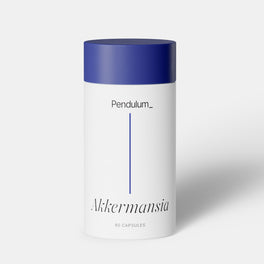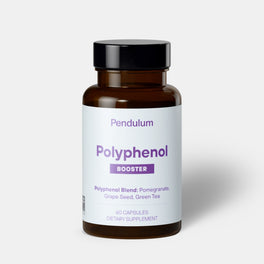Looks like your
cart is empty

Metabolic Daily
Improve metabolism

Akkermansia
Improves gut health

Polyphenol Booster
Increase antioxidants to protect cells
Stay in touch about special discounts, nutrition tips and additional education.
Looks like your
cart is empty

Improve metabolism

Improves gut health

Increase antioxidants to protect cells
Your gut is home to trillions of bugs, which—in a way—means you’re responsible for taking care of trillions of “pets”. You can call these pets microbiota, microbes, or microflora, and their home is collectively called your gut microbiome.
These tiny gut bugs work hard for you in your microbiome. They help digest food, absorb nutrients, and are intimately involved with your metabolic health, immune regulation, cognitive function, even your mood. With such a vital role in your overall health, it’s important to know how to properly care for your gut bugs.
A healthy microbiome is a diverse microbiome. It has been estimated that our gut contains a range of 1,000 bacterial species, the more varied, the better. Of course, there are good gut bacteria, meaning bacteria that benefits our overall health.
These good gut bugs can fight off infection, help break down sugar and carbs, get rid of toxins, and help strengthen the gut lining. And there are bad gut bacteria, bugs that can cause illness. The goal is to feed and care for the gut good bugs so they thrive and flourish while the bad gut bugs don’t.
When it comes to your gut bugs, they are what you eat. Here are 5 ways to ensure you’re providing the proper nutrition to help your good gut bugs thrive.
Fermented foods include live, active yogurt, kefir, kimchi, kombucha, sauerkraut, miso, and tempeh. These are foods in which the sugars they contain are broken down by yeast or bacteria. Research shows that people who consume these foods have more lactobacilli in their guts, a beneficial bacteria, and less Enterobacteriaceae, which is a species of bacteria associated with inflammation and a number of chronic conditions.
Your body can’t naturally digest fiber—only specific bacteria in your gut digests fiber, so if you eat more fiber, these beneficial fiber-eating bacteria flourish. For example, apples, blueberries, almonds, and pistachios have been shown to increase Bifidobacteria which helps prevent intestinal inflammation and enhance gut health.
Another way to promote the growth of good gut bugs like Bifidobacteria, lactobacilli, and Bacteroidetes is to eat whole grains as they are also high in fiber. They also contain nondigestible carbs, such as beta-glucan, which are not absorbed in the small intestine and instead make their way to the large intestine to promote the growth of beneficial bacteria in the gut.
We’ve written about the importance of polyphenols in your gut microbiome before, but the short synopsis is this: polyphenols help shape the environment of the gut microbiome to benefit good flora, which is why we created Polyphenol Booster as an add on to your probiotic to maximize the benefits.
You can either increase your intake of probiotics by eating more probiotic-rich foods (such as fermented food), or you can take a probiotic supplement to colonize your microbiome with good gut bugs. May we suggest Akkermansia, Metabolic Daily, Glucose Control, or Butyricum?
To summarize, if you want healthy gut bugs, you have to properly care for and feed them. Your gut bugs may not let you cuddle them at night or look at you with cute eyes like some pets do, but if you nourish them well, they will repay you with better health.